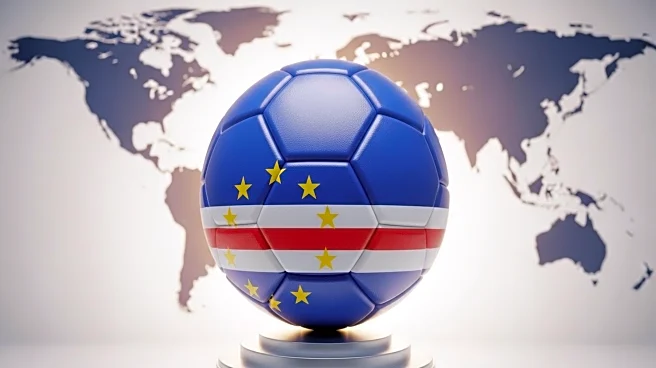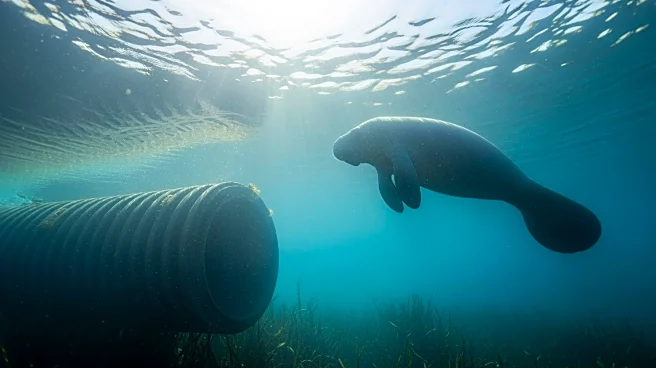What's Happening?
Cape Verde, a small African island nation, has qualified for the World Cup for the first time after defeating Eswatini 3-0. With a population smaller than Vermont, Cape Verde is the second smallest country to reach the men's World Cup since the tournament's
inception in 1930. The nation, ranked 70th in FIFA's men's world ranking, secured its spot by finishing first in its African qualifying group, surpassing Cameroon, a prominent soccer power in Africa. Cape Verde has previously participated in the Africa Cup of Nations four times, reaching the quarterfinals in 2013 and 2023. This achievement places Cape Verde among the smallest countries to have ever qualified for the World Cup, alongside Iceland, Paraguay, Trinidad and Tobago, and Northern Ireland.
Why It's Important?
Cape Verde's qualification for the World Cup is a significant milestone for the nation, highlighting its growing presence in international soccer. This achievement could boost national pride and inspire further development in sports infrastructure and youth programs within the country. For the global soccer community, Cape Verde's success underscores the increasing competitiveness of smaller nations in the sport, potentially leading to more diverse and unpredictable tournaments. Economically, participation in the World Cup could attract tourism and investment to Cape Verde, benefiting its economy and international profile.
What's Next?
As Cape Verde prepares for the World Cup, the nation will likely focus on strengthening its team and strategy to compete against larger and more experienced countries. The upcoming tournament in the U.S., Mexico, and Canada will provide Cape Verde with an opportunity to showcase its talent on a global stage. The country's participation may also prompt discussions on how smaller nations can leverage international sports events to enhance their visibility and economic opportunities.
Beyond the Headlines
Cape Verde's World Cup qualification may have broader implications for the representation of African nations in global sports. It could encourage other small countries to invest in sports development, fostering a more inclusive and diverse international sports community. Additionally, Cape Verde's success might influence FIFA's policies on supporting smaller nations, potentially leading to increased funding and resources for their development.

















